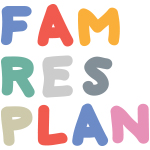Edukacijsko-rehabilitacijski
fakultet Sveučilišta u Zagrebu
[ Specifična obilježja
obitelji u riziku: doprinos planiranju
kompleksnih intervencija ]
The 2016 EUSPR conference, Berlin, Germany , October 31st – November 2nd 2016
Thursday, 03. November, 2016.
The main theme was “Sustainable Prevention in a Changing World” and the conference included keynotes on developing and understanding sustainable prevention systems, prevention responses to the health and social needs of populations in transition, and rapidly emerging health challenges.
We assembled an exciting programme of plenary speakers who addressed:
- Developing evidence-based guidance on prevention for migrant populations in the EU
- Sustainable prevention systems as a response to population change
- What is the place and value of prevention in today’s society?
- The dark logic of prevention – harmful consequences of public health interventions
Populations and behaviour in Europe are in transition, and new challenges to health and well being are emerging. This has led to an increased focus on changing needs, and how sustainable prevention systems and structures can be developed in order to offer evidence based and rapid prevention responses to these issues. For example, current international events mean that many people have left areas of conflict, and the consequences of poor infrastructure and the breakdown of family and other social structures. Populations are changing in other ways; the EU has an ageing population and low birth rate, and treaties have encouraged mobility (of young people) across borders in search of work and education opportunities. Mobile populations may already be experiencing poor health and well being, and may not be optimally served by the prevention systems of their host country, thus reinforcing inequalities and poorer outcomes.
Similarly, new disease threats, behaviours, technological and recreational cultures, and policies are emerging (e.g. new viruses; e-nicotine delivery devices; changes to cannabis laws) which may require rapid and/or different prevention (and research and evaluation) responses, but practically and politically, must be delivered through existing prevention systems.
At our 2016 conference we explored some of these issues, and ask other questions such as how can prevention scientists make meaningful contributions to policy and practice responses in a rapidly changing world? How do we begin to assess and address changing needs, when in many countries prevention systems are already poorly defined and are orientated to stable and historic health and social needs? What are the consequences for host communities with regards to health resources and the opportunity costs of supporting change? Are our existing prevention programmes and interventions effective in diverse populations? How do we develop prevention responses for rapidly arriving, and departing populations? How might changes in prevention delivery systems and technological innovations lead to better outcomes?
We also had a special session discussing the way forward for prevention science. Panel members will be asked to explore the future of prevention science and ask questions about the ‘politics’ of prevention, the meaning of participant autonomy in contested policy and intervention areas, and how prevention scientists negotiate changing societal attitudes to health and social behaviours.
Project team members participated on the conference with the posters presentations as follows:
(1) “SPECIFIC CHARACTERISTICS OF FAMILIES AT RISK: CONTRIBUTION TO COMPLEX INTERVENTIONS PLANNING” (link to poster)
(2) “METRIC CHARACTERISTICS OF THE FAMILY RESILIENCE ASSESSMENT SCALE (FRAS) IN CROATIAN CONTEXT” (link poster ).

